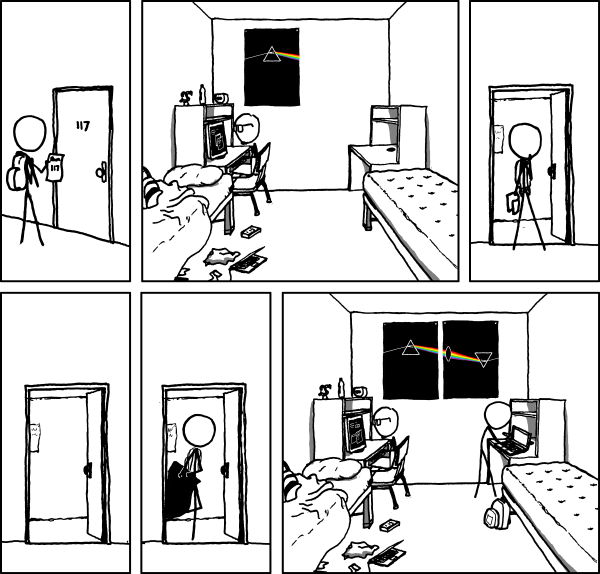Sometimes, when trying something new in optics, it is very hard to know where to begin, and find knowledgeable source. I want to share a small collection of resources that I had found immensely useful.
“Basic Lab Skills” by Steve Cundiff (pdf) is a short must-read for every experimental optician.
“Rule of thumb in Opto-Mechanics” by Katie Schwterz (pdf) is also very good to have a sense of what can be done with an experiment.
refractiveindex.info is a great ressource to know the refractive index of many materials.
The Encyclopedia for Photonics and Laser Technology, maintained by Rudiger Paschotta is an excellent ressource, and very knowledgeable about ultra-fast optics
More generally, a lot of information can be found the application or technical notes from CVI-Melles Griot, Newport (2), Edmund Optics or Maxim (electronics).
For French engineers, Techniques de l’Ingénieur is a very good ressource– if you have an access !For every day presentation needs, I use paint.net for dealing with images, imageJ when it get more complicated and Inkscape when it has to be vectorial (i.e. Latex).
I write my reports with TexMaker; it is not the best interface, but is has the advantage of being free, having a built-in viewer and supporting utf8, which makes it easier for accents and some special symbols and is more future-oriented (I hate TeXnicCenter, and I paid for Inlage, which proved to be instable : several crashes later, I gave up).To manage my bibliography, I use Mendeley , which is great to keep it organized, synced and perform search many articles.To sync the code over all my computer, I use git (it requires a bit a training; see the tutorial).References books My favorite reference book on general optics is “Fundamental of Photonics” by Saleh & Teich. It is mush easier to read and up-to-date than the famous “Principle of Optics” by Born & Wolf, which I find cumbersome to read in sometimes needlessly obfuscated. For general understanding of optics, “Optics” by E. Heicht is cool. For general electromagnetism, “Classical Electrodynamics” dy J. D. Jackson is the reference, but I really don’t like it. You’d rather read “Electricity and Electromagnetism” by E.M Purcell. If you speak French, and want to go further, reading “Electromagnétisme et relativité” J.-M. Raimond ENS course is a good idea (available free here).For Lasers and gaussian optics, Siegman’s “Laser” is the reference. Very intereting information on lasers can be read on Sam’s Laser FAQ.
For Extreme UV and Soft X-Rays, “Soft X-Rays and Extreme Ultraviolet Radiation” by David Attwood is very interesting.For optical engineering and technique, “Optical Shop testing” by D. Malacara (pdf here) and “Handbook of Optical Design” by the same (pdf here) are good reads.
Concerning photolithography, the best book I’ve read so far is Chris Mack’s “Fundamental Principles of Optical Lithography“.Joseph Goodman’s “Introduction to Fourier Optics” and “Statistical Optics” are two excellent books that I believe everybody should read !Numerical simulationsThe best book I’ve found on Fourier Optics numerical simulation is “Computational Fourier Optics” by D. Voeltz. It is far better than another one my colleagues refer to, “Numerical Simulation of Optical Wave Propagation” by JD Schmidt. I found an interesting discussion on Nerd’s Rage blog (especially the article about on scalar diffraction)For Ab-Initio (exact, FDTD) simulations, you can learn how to use the free, open-source software MEEP. It has been developed, among others, by Steven G. Johnson, the same guy who implemented FFTW (Fastest Fourier Transform in the West), used by Matlab to perform FFTs. Since it is working with Linux, and you may use Windows as you your primary OS, I recommend you to use the free VirtualBox to create a Ubuntu virtual machine , and then install meep with a simple “sudo apt-get install meep” (I had some issues with hdf5, you might have the same, but they can be solved:)For optical engineering, you may want to learn how to use Zemax, using the manual which comprise a very good tutorial (it can be found here for example).(If for some reason you cannot buy a book, you may want to check on freebookspot or eknigu if they’re available;-)I’ll try to get that list updated !engineer guidelines ;steps of a projects (computers, dessins bureau)
